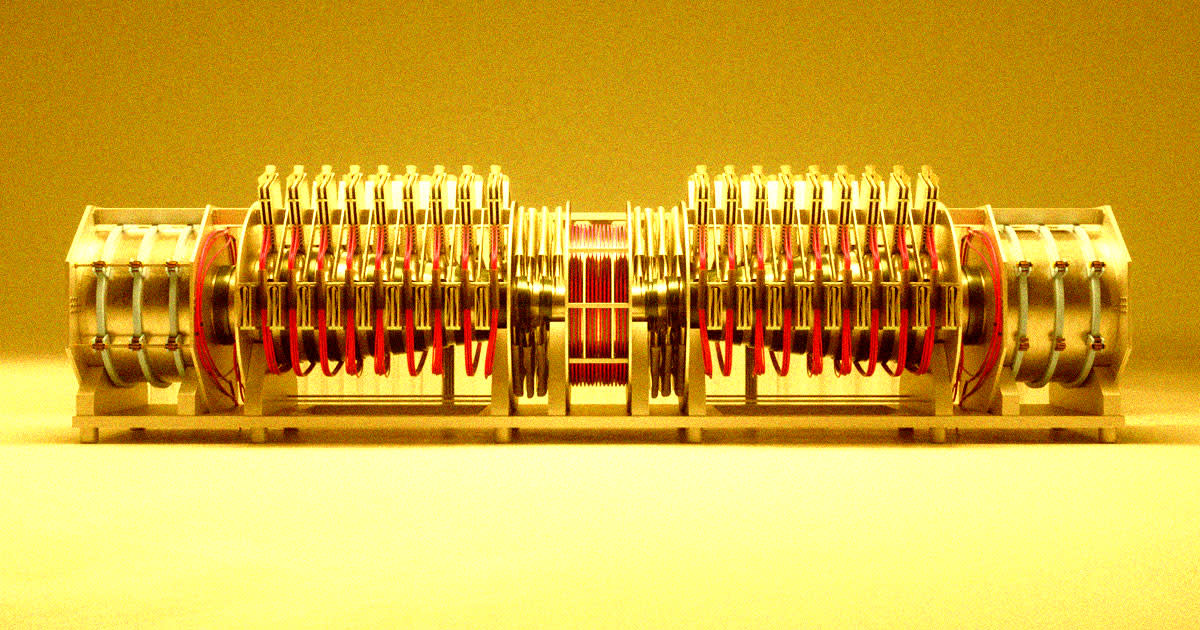OpenAI Negotiating to Buy "Vast Quantities" of Fusion Power, Which Doesn't Exist Yet

For all his public visibility, Sam Altman only get a measly $65,000 a year in salary from OpenAI, and no ownership stake.
But as The Wall Street Journal reports, the CEO has a far more lucrative venture fund to pay the bills: he's invested in hundreds of companies, many of which are directly benefiting from his AI company's soaring success.
And some of those companies directly do business with OpenAI, raising questions over possible conflicts of interest.
Near the top of that list is Helion, a nuclear fusion power company that's been around for about 11 years.
And as it turns out, the company didn't just sign a massive partnership with OpenAI partner Microsoft last year, but it's even in talks for a deal with OpenAI itself to "buy vast quantities of electricity to provide power for data centers," according to the WSJ.
But there's one big problem: the tech has yet to materialize, making any promises of "vast" amounts of power nothing but an empty-handed commitment in the distant future. Try as they might, researchers have yet to figure out how to make it a viable way to generate energy, rendering it nothing more than a moonshot.
At the same time, the revelation throws Altman's already dubious personal dealings into an even murkier light.
Despite fusion remaining a glint in the eye of nuclear engineers, Altman professes to believe in the promise of a renewable source of electricity, having invested $375 million in Helion back in 2021, the biggest payout he's ever made to a startup.
"Helion is, like, more than an investment to me," he said at a StrictlyVC event last year. "It’s the other thing beside OpenAI that I spend a lot of time on. I’m just super excited about what’s going to happen there."
In many ways, it would be an elegant — albeit entirely unproven — solution to OpenAI's insatiable energy demands. Training AI is an infamously power-hungry process that consumes a staggering amount of water as well. Apart from fusion energy, Microsoft is also investigating building small nuclear fission reactors to keep its data centers running.
But despite scientists repeatedly claiming various "breakthroughs" in the field of nuclear fusion, we have yet to build a reactor that can produce a significant amount of energy.
Still, Altman is doubling down, claiming that the future of AI will depend on a "breakthrough" in power generation during this year's World Economic Forum in Davos. "It motivates us to go invest more in fusion," he said at the time.
The recently-minted billionaire has even implied that artificial general intelligence, a form of AI that would supercede the capabilities of humans, could even "make fusion" happen.
In other words, like many of his peers in the venture capital world, Altman is in the business of selling dreams, not technological actualities. Besides, as he recently admitted, his AI company doesn't even know how its current crop of AI models works in the first place.
"We can build AGI," he tweeted back in 2022. "We can colonize space. We can get fusion to work and solar to mass scale. We can cure all human disease. We can build new realities."
More on Sam Altman: Sam Altman Admits That OpenAI Doesn't Actually Understand How Its AI Works


